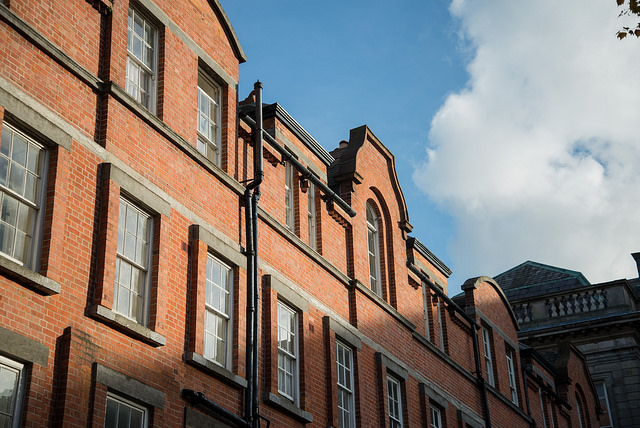The “Know your Neighbour” was part of the manifesto of Trinity College Dublin Students’ Union (TCDSU) President-elect, Kevin Keane. The initiative seeks to build community by creating networks in areas that are densely populated by students, such as Phibsborough and Rathmines. Speaking to The University Times, Keane states that the plan will especially benefit international students and first years who are not in Halls. However, he stresses that all students stand to gain, noting fourth-year friends of his who live in areas like Phibsborough and yet don’t know the students living nearby. Through the plan, Keane will aim to build those potential alliances and to increase the feeling of community among Trinity students living in Dublin.
When asked how the plan will get off the ground, he explains that for each area “a Facebook group will be set-up” and that TCDSU “will organise an event at the start of the year”. The events will serve as mixers to introduce people to fellow students living nearby, helping them get to know faces they otherwise might have walked past. In this endeavour, Keane expects to collaborate with newly elected Ents Officer, Jonah Craig, seeing Ents as “a great way to bridge divides and build community”. Certainly, most people find it easier to socialise over the shared experience of music, a common feature of Ents’ events. Indeed, Keane foresees his involvement as being primarily focused on this initial stage. He states that once people get to know each other, the networks should be “largely self-fulfilling”.
For many students, this might be what a student union should be for – helping its members connect with and support each other
His vision for the scheme is one of practical benefits, such as “sharing a taxi home or calling in for a glass of milk”. For many students, this might be what a student union should be for – helping its members connect with and support each other. Given that the union is sometimes seen as detached, these steps should help connect it to its members by giving them real improvements that benefit their student experience. Most important to this initiative, however, is the potential to reduce the isolation that many students endure at some point in their college life. Consider the case of a first year TSM student who has moved to Dublin to study. They are unlikely to know many local residents, if any. Their individual timetables means that their lunch hours will be different to many of their classmates, making it harder to organise lunch together. Trinity, being a far larger institution than secondary schools, is also more impersonal. As such, many students are just getting settled at the start of term, and then find themselves anxious and isolated after the initial friend-making weeks have passed.
Loneliness is a leading health concern, which is linked with stress, depression and even premature death. Luckily, college is a welcoming place, with societies to cater for nearly every interest and a committed welfare office that supports students in need. However, for many people, making meaningful connections remains a challenge. While societies are fantastic and should be utilised, their hierarchical structure and established cliques can be intimidating. Encouraging people to make friends in their local area, away from college politics, avoids that difficulty, providing an environment in which everyone enters on an equal footing. It also removes the pressure of picking a certain interest and presumably, therefore, having to excel at it. Students simply need to attend the starting events and talk to their fellow residents, whose attendance will indicate their openness to meeting new people.
This is a welcome initiative that will reduce student isolation by fostering a practical sense of community
Indeed, the hustle and bustle of campus magnifies the impression that college is awash with groups of friends and that you are the only person alone. However, if you look a little closer, you will notice many people by themselves. This became most evident to me while I was carrying out polling during the TCDSU election for this newspaper. As I toured around the Arts Block, of course I encountered many groups. But I was also surprised by the amount of people who, for whatever reason, were alone. The people comprised all sorts and it stands to reason that many of them did not feel lonely, despite being alone. However, at least some of these individuals would have surely preferred to spend their lunch hour with company. Clearly, there are a lot of students who would like to have more friends in college.
At present, there is no equivalent initiative in Trinity to “Know Your Neighbour”. And so, even if the plan is a flop there is nothing to lose by trying. All in all, this is a welcome initiative that will reduce student isolation by fostering a practical sense of community. As the saying goes, no man is an island and no student should feel alone.







